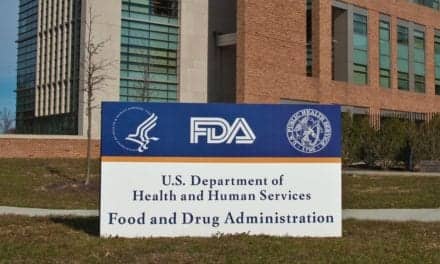An analysis of blood sera taken from 63 covid-19 patients, 71 control patients, and various coronavirus-exposed animals has provided strong support for use of the SARS-CoV-2 receptor-binding domain (RBD) as an antigen for reliable tests to detect antibodies to the virus.1
Because the SARS-CoV-2 RBD differs from those in related coronaviruses, it is capable of inducing antibodies that are highly specific to SARS-CoV-2.
Additionally, the researchers found that more than 95% of covid-19 patients developed antibodies to a recombinant SARS-CoV-2 RBD antigen within 9 days after the onset of symptoms. Together, these results suggest that RBD-based antigens could be used to develop serological tests for SARS-CoV-2 exposure that are both specific for, and sensitive to, the SARS-CoV-2 virus.
In the sampled patients, the presence of RBD-induced antibodies strongly correlated with higher levels of virus-neutralizing antibodies. Thus, deployed at the population level, RBD-based antibody tests could provide an estimate of how many individuals have recovered from SARS-CoV-2 infections—a necessary first step for implementing policies to contain the pandemic and safely reopen communities.
Lakshmanane Premkumar, PhD, a research assistant professor of microbiology at the University of North Carolina, and colleagues probed the antibody specificity of the SARS-CoV-2 RBD, a critical portion of the virus’ spike protein complex, in sera sampled from symptomatic human patients, control patients, and animals exposed to various zoonotic coronaviruses. The researchers found that the RBD antigen was 98% sensitive—meaning it detected SARS-CoV-2 antibodies in 98% of individuals who tested positive for the virus via polymerase chain reaction (PCR) tests—and 100% specific in the covid-19 patient cohort, meaning that all patients who had tested positive for RBD-targeting antibodies were also positive for SARS-CoV-2 in PCR tests.
In some patients, the RBD antigen crossreacted with antibodies for SARS-CoV-1 (a related coronavirus that causes SARS). But since SARS-CoV-1 prevalence is very low in humans, such crossreactivity is unlikely to pose diagnostic challenges, the scientists say.
The researchers say they plan to examine whether asymptomatic patients who carry the virus exhibit antibody responses similar to those of patients who experience symptomatic infections.
Reference
- Premkumar L, Segovia-Chumbez B, Jadi R, et al. The receptor binding domain of the viral spike protein is an immunodominant and highly specific target of antibodies in SARS-CoV-2 patients. Sci Immunol. 2020;5(48):eabc8413; doi: 10.1126/sciimmunol.abc8413.




